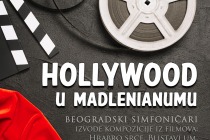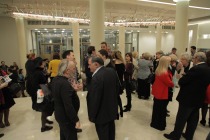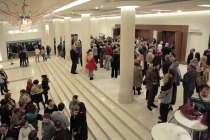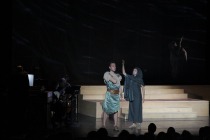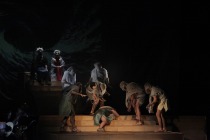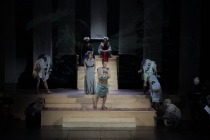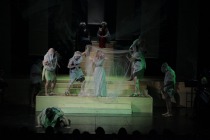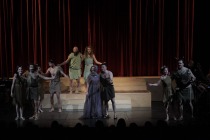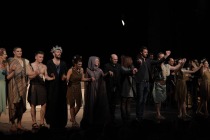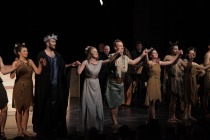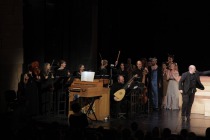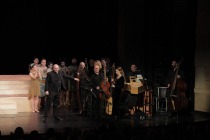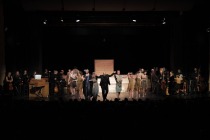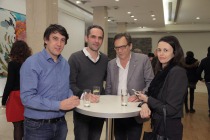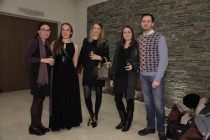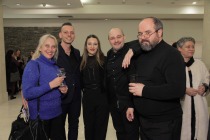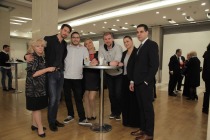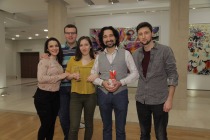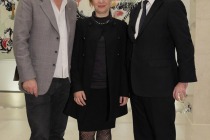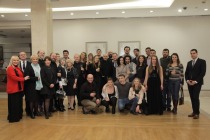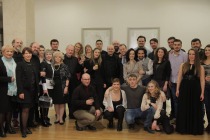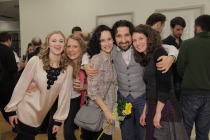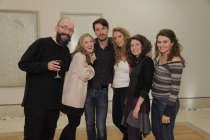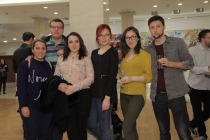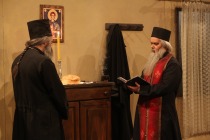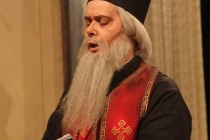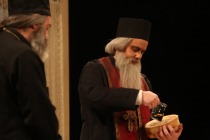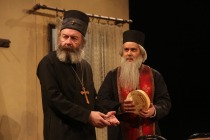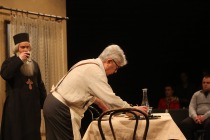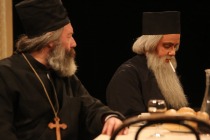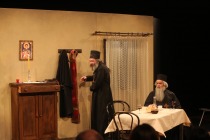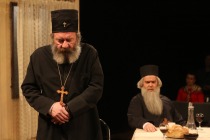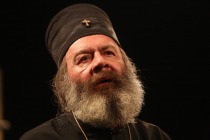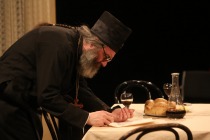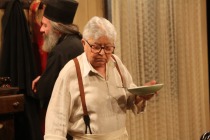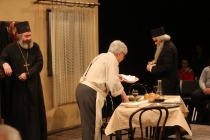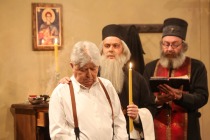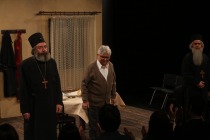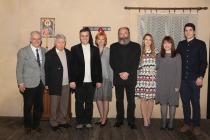Sreda, 31. januar 2018. u 19:30
Velika scena MADLENIANUMA
5. izvođenje
Koprodukcija Opere i teatra Madlenianum i Narodnog pozorišta u Beogradu
Volfgang Amadeus Mocart
DON ĐOVANI
Dirigent: Fabrizio Da Ros
Režija: Alberto Triola
Scenograf: Ticiano Santi
Kostimograf: Katarina Grčić Nikolić
Dizajn svetla: Srđan Jovanović
Dizajn maske: Marko Dukić
LICA:
Don Đovani: Vladimir Andrić
Komendatore: Aleksandar Manevski
Dona Ana, njegova kći: Snežana Savičić Sekulić
Don Otavio, njen verenik: Marko Živković
Dona Elvira, dama iz Bugosa: Aleksandra Stamenković Garsija
Leporelo, sluga Don Đovanija: Dragoljub Bajić
Mazeto, mladi seljak: Marko Pantelić
Cerlina, njegova nevesta: Nevena Matić
Seljaci, seljanke, sluge, muzikanti, igrači, igračice
Hor, orkestar i balet Narodnog pozorišta u Beogradu
Koncert majstori: Edit Makedonska, Vesna Janssens
Šef hora: Đorđe Stanković
Asistent dirigenta: Dijana Cvetković
Asistenti reditelja: Ana Grigorović, Libero Steluti i Mikelanđelo Patrici
Inspicijent: Branislava Pljaskić, Ana Milićević
Sufleri: Silvija Pec, Kristina Jocić
Organizator: Vukašin Tomić
Asistenti kostimografa: Aleksandra Pecić
Asistenti scenografa: Miraš Vuksanović i Jasna Saramandić
Audio realizacija: Dušan Arsikin
Realizacija svetla: Vladimir Krunić
Prevod za titlove: Gavrilo Rabrenović
Realizacija titla: Dragan Stevović
Majstor pozornice: Milan Ćirić
Šminka i frizure: Mirjana Rakić
Garderoba: Tanja Vuksanović i Milorad Vukotić
Dekor i kostimi su izrađeni u radionicama Narodnog pozorišta.
Vreme trajanja: 2 sata i 50 minuta sa jednom pauzom

